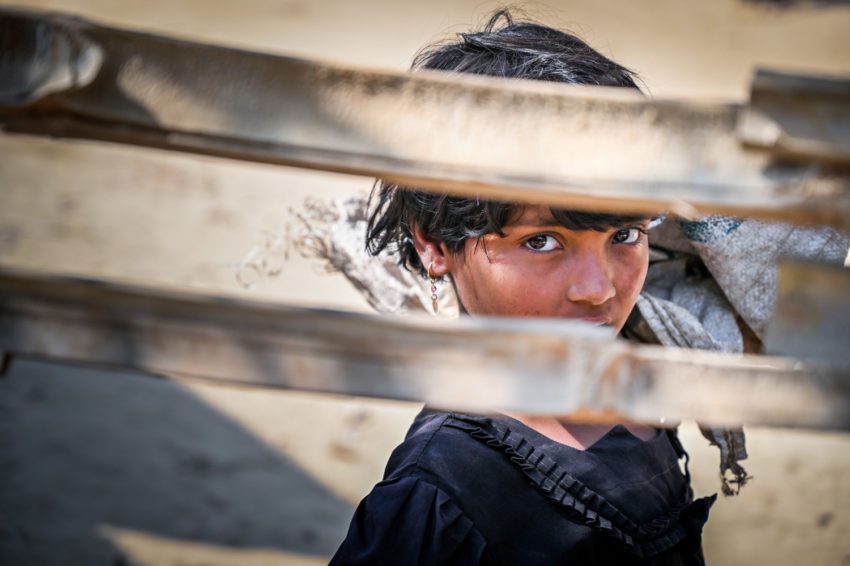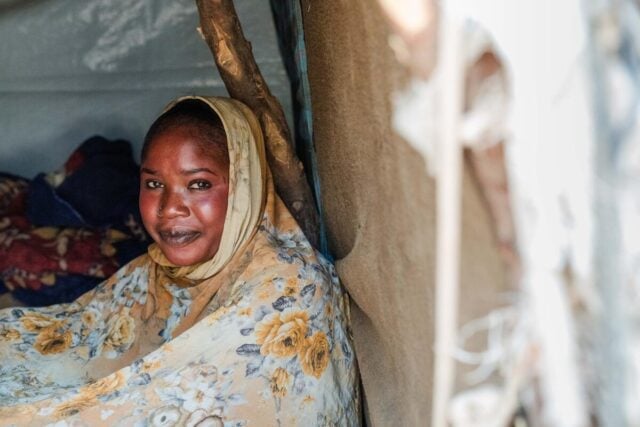You want to raise your kids to be caring, global citizens who are compassionate toward people in need. But how do you talk with your children about a subject as difficult as refugees?
Stories in the news show children and families who’ve endured tragic loss, terrifying violence, or painful injury. Experts widely agree that parents should shield young children from violent and disturbing news. But how can you explain the global refugee crisis in age-appropriate terms and help them become informed and empowered to help?
1: Do a little research.
You don’t have to have all the answers, but make sure you’re informed. The better you understand the various situations around the world, the better you’ll be able to explain issues in ways that are appropriate for your child. Check out our full list of FAQs or look at some bigger issues, such as the Syrian refugee crisis and Myanmar refugees in Bangladesh as a starting point. This refugee mom’s to-do list photo essay could be helpful, too.
2: Find out what they know, then explain.
Start with a baseline by asking your kids an open-ended question. Something like: “What do you know about refugees?” Then, follow up with something like: “Why do you think so many people have had to leave their homes?” Your kids might know more than you think or they might have heard something inaccurate.
Use kid-friendly words and examples to explain what’s going on, but keep it simple. Try something like: “Different groups of people want to be in charge. In many cases, fighting in their home country has ruined homes and schools and roads, and it’s not safe for families to stay.” Explore this kid-friendly photo essay together to learn what life is like for Syrian kids living in a refugee settlement in Lebanon.
3: Help your kids feel safe.
Help your children know they’re safe. For example, if they are concerned that they might have to leave their home and become refugees, explain how we don’t have the same the political problems that are causing the violence in Syria, South Sudan, Myanmar, or Venezuela. This is also a great time to pray together, give fears to God, and ask for comfort and protection. You could also teach your child Psalm 23:4, “Even though I walk through the darkest valley, I will fear no evil, for you are with me; your rod and your staff, they comfort me” (NIV).
4: Pray for refugees together.
Prayer is a great way to teach your children how to intercede on behalf of those in need. Pray together for refugees. Here’s a sample prayer to get you started:
Good Shepherd, no refugee is a stranger to You, and no one is ever far from Your loving care. Watch over children and families as they travel to camps or relocate within their country. Shelter their souls and their bodies. Heal the hearts of refugees who have endured unimaginable tragedy and trauma.
“God is our refuge and strength, an ever-present help in trouble.” —Psalm 46:1 (NIV)
5: Let your kids do something to help refugees.
On his show, Mister Rogers told a story that when scary things came on the news, his mother would tell him to “Look for the helpers. You can always find people helping.” Encourage your children that they can be helpers too. See if your kids might like to do something to help children who’ve had to leave their homes. Here are five ways for your kids to help refugees.


